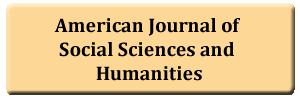Assessing the Reading and Writing Skills of A1 Learners through the Application of Differentiated Instruction and the Use of Portfolios: A Case Study
DOI:
https://doi.org/10.20448/804.5.2.159.174Keywords:
Alternative assessment, Formative assessment, Portfolios, Private language institute, Reading, Writing.Abstract
The main purposes that have triggered the present research are the potential benefits of implementing portfolios in a foreign language A1 class of students, as an alternative means of assessment. A case study was conducted in a Private Language Institute which examined the contribution of the portfolio in enhancing writing and reading skills. Alternative assessment, which is process oriented and is also an interactive and learner centered process, was expected to lead to increased motivation, learner autonomy and consequently to improved reading and writing performance (Burner, 2014). This research aimed at investigating how two groups of students, one of which formed the experimental group and was taught through differentiated instruction and the other which comprised the control group and was taught through the use of conventional books and materials which were used in the Private Language School, perceived and responded to the language goals. Feedback on portfolios aimed at demonstrating students' strengths and weaknesses and encouraged them to learn by moving away from traditional ''paper and pencil'' tests (Smith, 1996). Although formative assessment lacks the status given by parents or teachers, compared to a grade, it may be more suitable in selecting evidence of knowledge, especially the ability of students to perform certain tasks. In this procedure, not only will students have to evaluate their own work, but the teachers will also be required to reflect on her practices and choices for future development.



